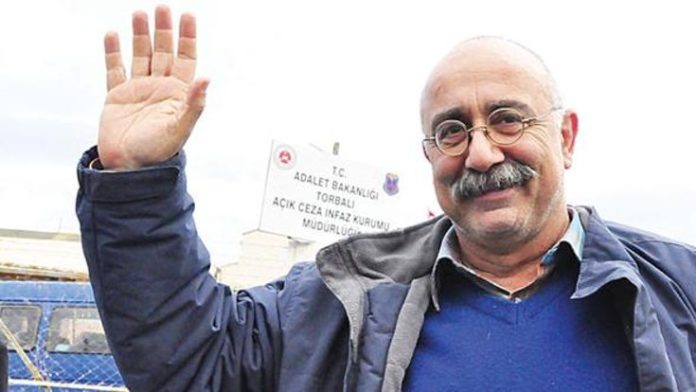By Sibel Hurtas
ISTANBUL (Al-Monitor) — The Turkish Twitter-sphere went abuzz July 14 with a post that read, “The bird has flown away. Wishing the same for the remaining 80 million.” The tweet belonged to ethnic Armenian linguist and writer Sevan Nisanyan, who had been behind bars since January 2014. True to his flamboyant style, Nisanyan had chosen Twitter to announce he had escaped from prison and was a free person again.
For years, Nisanyan stood out as a colorful individual on Turkey’s intellectual scene. A Yale and Columbia University alumnus, he is the author of a prominent etymological dictionary and travel guides, but the book that made him a truly controversial figure was the “Wrong Republic,” which questioned taboos about the Turkish Republic and its founder, Mustafa Kemal Ataturk, infuriating secular and nationalist Turks. With his blunt criticism of religion, he also drew the wrath of pious Turks as well.
The chain of events that led to his imprisonment began in 1995, when Nisanyan relocated to the picturesque village of Sirince, near Turkey’s Aegean coast. Sirince was in a state of decay, and Nisanyan began renovating its traditional houses, converting them into stylish hostels known as “pensions.”
Thanks to Nisanyan’s efforts, Sirince soon became a popular tourist destination. Yet, there was a problem. The place was a protected area — off-limits to construction — which meant that Nisanyan had engaged in illegal construction activity. His transgression, however, had more to do with the cumbersome Turkish bureaucracy. After the village was declared a protected area in 1987, the authorities were supposed to revise the area’s zoning plan within a year, which they failed to do. A stone’s throw from the magnificent Ephesus, one of Turkey’s top historical sites, the village fell into a state of disrepair. Exasperated from petitioning the authorities for the new zoning plan, Nisanyan decided to go ahead anyway. In the meantime, he had begun to produce his controversial writings, which, quite tellingly, coincided with a series of demolition orders for the pensions. In one interview, Nisanyan said his troubles began after he became a columnist for the Taraf daily in 2009. “Twenty-three demolition decisions followed in 2010,” he said.
In an illegal construction haven such as Turkey, the authorities’ sternness vis-a-vis Nisanyan and the trials that followed were quite unusual. The most striking example is perhaps President Recep Tayyip Erdogan’s gigantic palace, which was erected on a protected area despite a court ruling that had ordered the construction to stop. After the 2014 ruling, Erdogan challenged the court with a memorable comment: “Let them demolish it if they can.”








